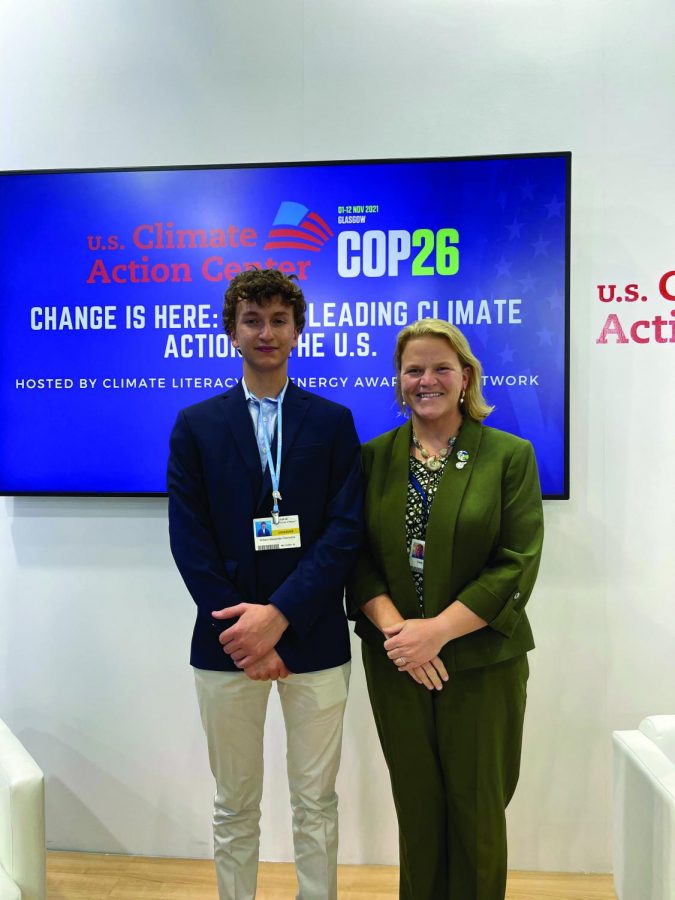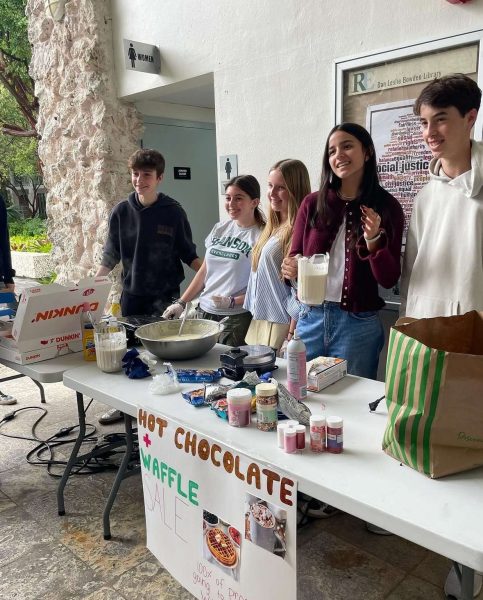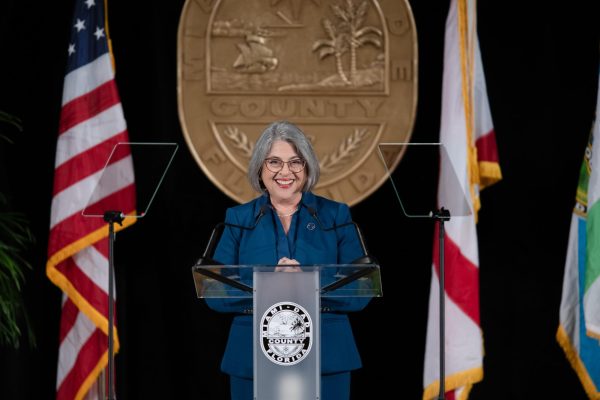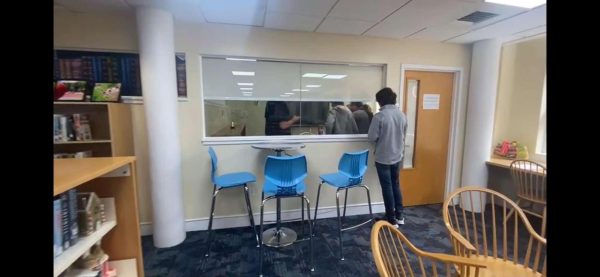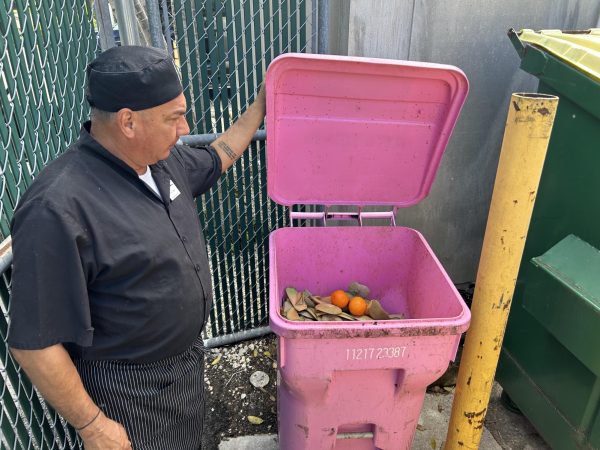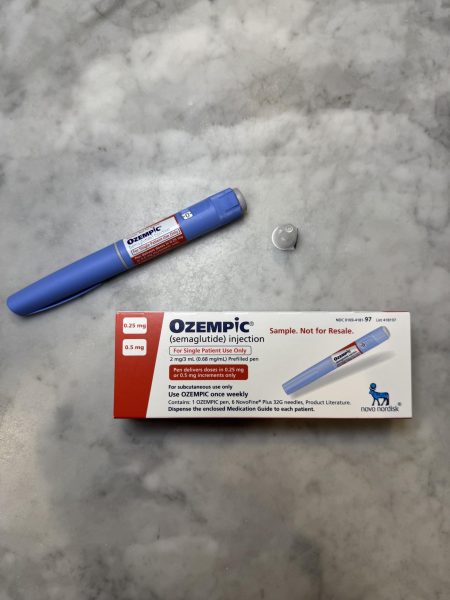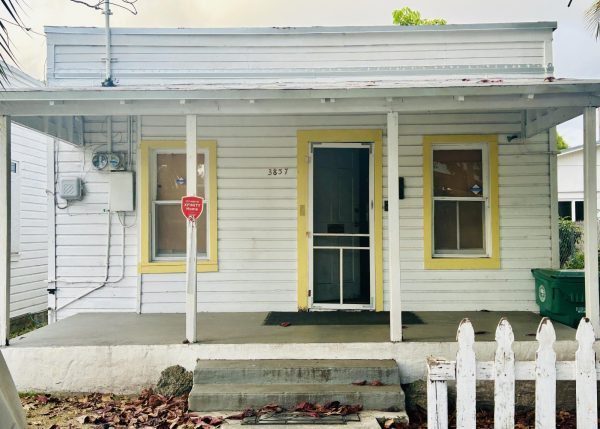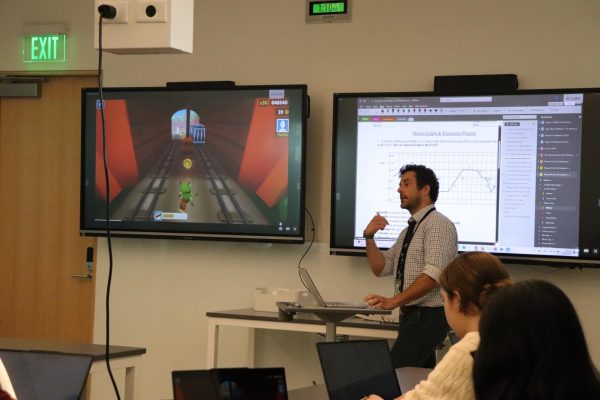COP26 feat. Ransom Everglades
Will Charouhis ’24 and Dr. Kelly Jackson join the climate fight in Glasgow
Charouhis and Dr. Jackson attended numerous events at the landmark climate conference.
In the early weeks of November, representatives from 197 countries gathered for a two-week summit dedicated to mitigating climate change. Among the thousands of attendees at the 2021 United Nations Climate Change Conference (COP 26) in Glasglow, Scotland, were Will Charouhis ’24 and Dr. Kelly Jackson, the Director of Environmental Sustainability at RE.
The historic summit had large shoes to fill. It marked the 26th annual Conference of Parties, a gathering of the countries that signed the UN Framework Convention on Climate Change in 1994. The 2015 COP 21 resulted in the landmark Paris Agreement, in which 195 countries mutually agreed to begin lowering greenhouse gas emissions. I was recently able to sit down with both Dr. Jackson and Charouhis individually to discuss their unique experiences at COP.
Charouhis’s initial interest in climate change was sparked six years ago by the monumental Paris Agreement, but over the next few years, he “grew frustrated by the lack of action and began traveling to New York and Washington, D.C., to meet with any leaders who would agree to talk.”
A few years later, in 2018, Charouhis founded We Are Forces of Nature, a youth movement aimed at halting climate change with a unique focus on ocean health. He says that living in Miami has been a pivotal influence, “since our city sits on the water’s edge and is often branded in the press as ground zero for sea-level rise.” Shortly after, he and a group of RE students traveled to New York to participate in the Global Climate Strikes, in which more than 4 million people took part worldwide.
Since then, his continued dedication to youth advocacy and action has led to his recognition by the United Nations. He was invited to COP 25 in Madrid as well as this year’s summit, where he was joined by Dr. Jackson after she passed a rigorous application process. Charouhis reports that there was a sense of urgency in the air, because in the five years since the Paris Climate Accord, “little progress was made, and the climate emergency had reached an irreversible tipping point” with the habitability of the planet at stake.
At the conference, Charouhis sat on various youth panels and attended small meetings with former President Barack Obama and Jane Goodall. He said that both speakers were “inspiring,” and Obama’s direct address to young people in particular resonated with him. However, the main action took place in the mile-long conference zone, which was made up of different areas and pavilions requiring different clearance levels. Charouhis described it as a “chaotic sea of adults… with every world language overheard.”
Charouhis’s non-profit work led to him sitting on a panel at the US Climate Hub among fellow youth who expressed “bitterness and eco-anxiety… calling the promises made at COP 26 ‘empty rhetoric.’” After listening to representatives from poorer countries like Indonesia and nations in East Africa, he gained a deeper appreciation for nations “whose existence is threatened if they halt climate change, and whose existence will be exterminated if they don’t.”
For Dr. Jackson, COP was a uniquely rewarding experience in part because of her extensive climate expertise. After earning her Ph.D from the University of Miami with a focus on coastlines and sea-level rise, she now teaches Earth Science, Physical Science, and Marine Field Research, and trains RE students for their PADI scuba certification. Her focus at COP was meeting as many self-proclaimed “climate geeks” like her as possible. She explained to me that “getting the opportunity to meet friendly people from all over the world” was the best part of the summit.
Not having any panels to sit in, and labeled as an ‘NGO Observer,’ Dr. Jackson was free to roam as many sections of the summit as she could. She said she spent a lot of time exploring pavilions outside of the US zone. She was able to attend large panels with luminaries like Theresa May and David Attenborough. She described the special experience of putting on translating headphones in order to hear delegates in other languages.
She was even able to attend Charouhis’s youth panel and described seeing him up there as simply “awesome.” Overwhelmed by the activity around her, Dr. Jackson admitted that she wished she could somehow clone herself and visit every single room. Being well-versed in the climate crisis already, Dr. Jackson said that the in-person interactions are what made COP special. She was able to interact with individuals from island nations, indigenous communities, and tribal nations, each one affected by global warming in a different way.
Mixed feelings plagued this year’s conference, with more than 500,000 protestors taking to the streets in Glasgow and major cities across the globe, demanding more action from world leaders. However, despite the negative media attention swirling around the summit, both Charouhis and Dr. Jackson left COP optimistic, if cautious about complacency.
In Charouhis’s eyes, some of the most impactful changes included major commitments to end coal financing, reduce methane reliance, and halt deforestation. Dr. Jackson agreed, adding, “Yes, it could be better, but at least an agreement was come to. It can always be stronger, but for 197 countries to agree on something is always a challenge.” One of the main themes of COP26 was ensuring that promises are fulfilled, and so various oversight committees were formed to make sure that member-states stayed true to their word.
Charouhis tells me that as he boarded his plane back to the US, he felt that “for the first time since I started my own climate work in 2018, limiting global warming to 1.8 C is within reach.”
Ian Fox '24, a senior at Ransom Everglades School, is the executive news editor for the Catalyst. He's involved in Speech and Debate, Model UN, and TEDx...


